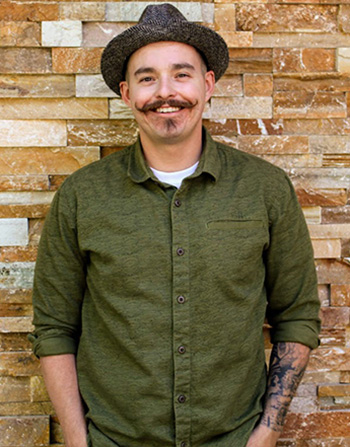Struggling with substance abuse can feel overwhelming, but you don’t have to face it alone. Many individuals seek substance abuse counseling to regain control of their lives, improve relationships, and overcome the sense of powerlessness. Whether you are dealing with substance abuse, chemical dependency, behavioral or chemical addictions, professional counseling can provide the support and guidance needed to understand the difference between these things, the measures needed to remedy them, and the accountability to follow through with your new choices.
At Recovery Hill, we understand the complexities of problematic choices, and offer compassionate, evidence-based counseling tailored to each individual’s needs. Our goal is to help clients develop coping strategies, rebuild self-esteem, and establish a solid foundation for long-term recovery.
Common Reasons People Seek Substance Abuse Counseling
Struggling to Control Alcohol or Drug Use
Substance abuse can gradually take over a person’s life, making it difficult to control substance use. Many individuals seek counseling when they recognize that their use of drugs or alcohol is beyond their control and affecting their daily lives. Counseling helps individuals identify triggers, develop coping strategies for cravings, and regain autonomy over their choices.
Experiencing Negative Impacts on Personal or Professional Life Due to Substance Use
Substance abuse often affects relationships, careers, and overall well-being. People may find themselves struggling with job performance, conflicts with loved ones, or financial difficulties as a result of their addiction. Counseling provides a structured way to address these issues and develop healthier habits.
Seeking Support During Recovery and Relapse Prevention
Recovery is a lifelong journey, and having the right support system in place can make a significant difference. Many individuals turn to counseling to stay on track, avoid relapse, and reinforce positive coping mechanisms. A counselor can provide accountability, encouragement, and guidance through every stage of recovery. At Recovery Hill, we offer complete access, 24 hours a day, directly to Kenny (owner) in emergency situations.
Coping with Co-Occurring Mental Health Disorders Such as Anxiety or Depression
Many individuals struggling with addiction also face underlying mental health conditions like anxiety, depression, or PTSD. Without proper treatment, these conditions can contribute to substance abuse as a way to self-medicate. Counseling addresses both the addiction and mental health concerns to create a well-rounded approach to healing.
Wanting to Repair Relationships Affected by Addiction
Addiction often strains relationships with family, friends, and colleagues. Many people seek counseling to rebuild trust, improve communication, and mend broken connections. Through therapy, individuals can learn how to foster healthy relationships and work toward reconciliation with their loved ones.
Needing a Structured Plan for Long-Term Sobriety (If Needed!)
Maintaining sobriety requires a clear and actionable plan. Counseling helps individuals set realistic goals, create relapse prevention strategies, and build a strong support network.
Counseling can help identify the difference between “abuse” and “addiction,” which may affect your personal goals. Maybe you’re NOT an addict! Maybe YOU ARE! The approach to treatment should be able to flex accordingly to these realities.
With a structured plan in place, individuals have a higher chance of sustaining their goals.
Why Choose Recovery Hill for Substance Abuse Counseling?
Recovery Hill is dedicated to providing effective and empathetic substance abuse counseling to individuals seeking recovery.
We take a comprehensive approach to substance abuse counseling, incorporating a variety of therapeutic techniques, including:
- Relapse Prevention Strategies: Identifying triggers, managing craving, and developing healthy coping mechanisms.
- Brainspotting: a somatic therapy, similar to EMDR, that unpacks deeply-rooted trauma, fear, and psychological causes for emotional dysregulation. It’s been called a “miracle treatment” for many, to quickly and safely process through the past. Brainspotting is a more fluid somatic therapy that lends itself to blend and integrate other modalities.
- Mindfulness and Relaxation Techniques to support emotional regulation and reduce anxiety. Using specific techniques, such as EFT, clients can handle overwhelming feelings that would otherwise cause them to seek escape.
- Internal Family Systems (IFS): this integrates well with Brainspotting, allowing clients the ability to connect to overwhelming internal opinions, the “internal critic,” the “Inner child,” and more.
About Recovery Hill Counseling
Recovery Hill is one guy, me (Kenny) dedicated to keeping treatment extremely personalized. The truth is, almost all therapy “programs” are run by corporate heads that are financially focused, while claiming “individualized treatment”. They have far too many clients, are burned out, and are showing up for a paycheck. I intentionally keep a small caseload to give each client my highest level of attunement and care. If you are one of the clients of Recovery Hill, you will have direct access to me via text or call, and 1-on-1 weekly sessions.
Additionally, I practice what I preach. You will never be asked to do something that I don’t already personally know will work, and that is evidence-based! I have 18 years of sobriety, and I’ve earned every second of them.

Start Your Substance Abuse Recovery Journey Today
Taking the first step toward recovery is a courageous decision, and we are here to support you every step of the way. If you or a loved one is struggling with substance abuse, Recovery Hill offers the professional guidance and compassionate care needed to reclaim your life.
Contact us today to schedule a consultation and begin your journey to lasting recovery. Look, if i don’t pick up, you WILL hear back from me within hours (at most 24 hours).
